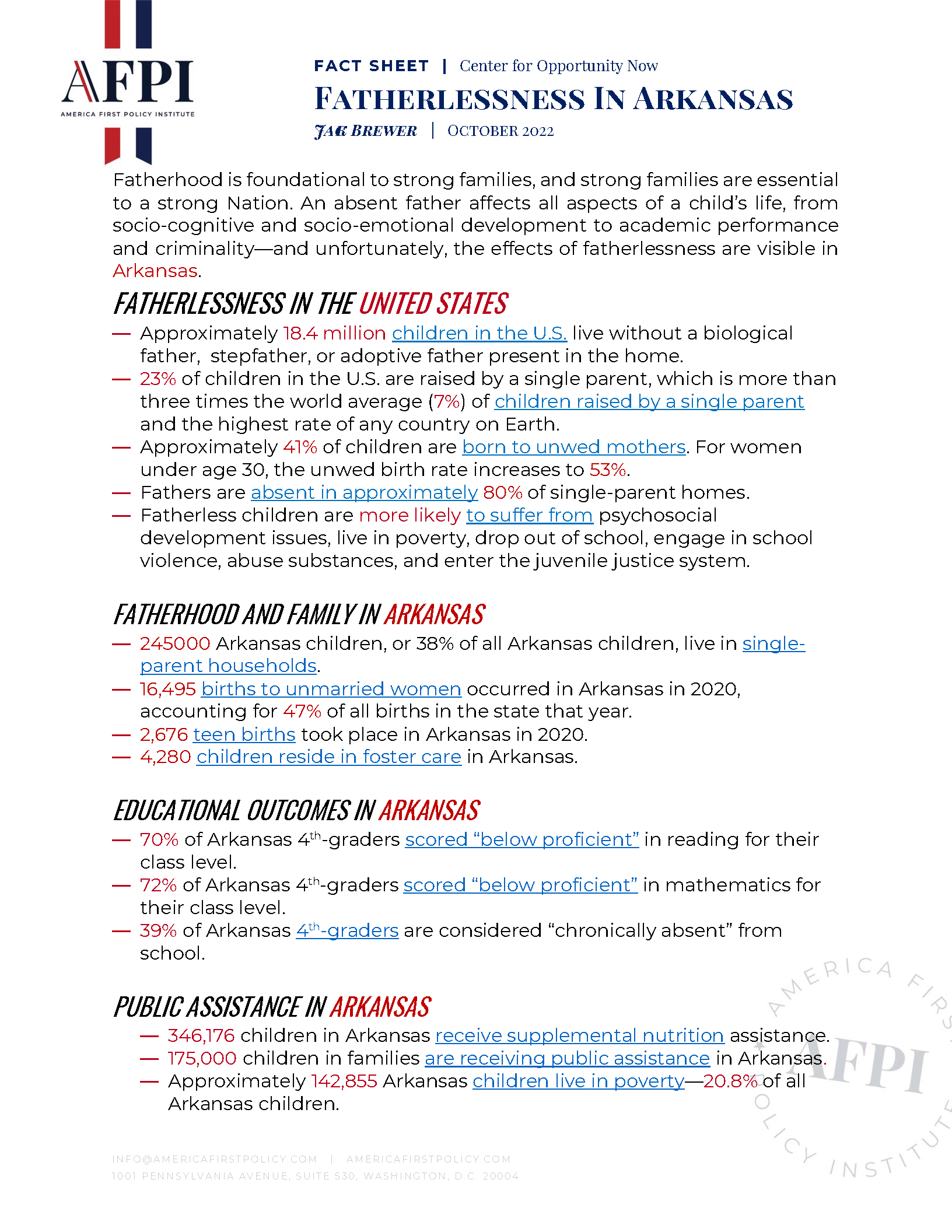Jack Brewer,
April 21, 2023
FACT SHEET: Fatherlessness In Arkansas
Fatherhood is foundational to strong families, and strong families are essential to a strong Nation. An absent father affects all aspects of a child’s life, from socio-cognitive and socio-emotional development to academic performance and criminality—and unfortunately, the effects of fatherlessness are visible in Arkansas.
FATHERLESSNESS IN THE UNITED STATES
- Approximately 18.4 million children in the U.S. live without a biological father, stepfather, or adoptive father present in the home.
- 23% of children in the U.S. are raised by a single parent, which is more than three times the world average (7%) of children raised by a single parent and the highest rate of any country on Earth.
- Approximately 41% of children are born to unwed mothers. For women under age 30, the unwed birth rate increases to 53%.
- Fathers are absent in approximately 80% of single-parent homes.
- Fatherless children are more likely to suffer from psychosocial development issues, live in poverty, drop out of school, engage in school violence, abuse substances, and enter the juvenile justice system.
FATHERHOOD AND FAMILY IN ARKANSAS
- 245000 Arkansas children, or 38% of all Arkansas children, live in single-parent households.
- 16,495 births to unmarried women occurred in Arkansas in 2020, accounting for 47% of all births in the state that year.
- 2,676 teen births took place in Arkansas in 2020.
- 4,280 children reside in foster care in Arkansas.
EDUCATIONAL OUTCOMES IN ARKANSAS
- 70% of Arkansas 4th-graders scored “below proficient” in reading for their class level.
- 72% of Arkansas 4th-graders scored “below proficient” in mathematics for their class level.
- 39% of Arkansas 4th-graders are considered “chronically absent” from school.
PUBLIC ASSISTANCE IN ARKANSAS
- 346,176 children in Arkansas receive supplemental nutrition assistance.
- 175,000 children in families are receiving public assistance in Arkansas.
- Approximately 142,855 Arkansas children live in poverty—20.8% of all Arkansas children.
